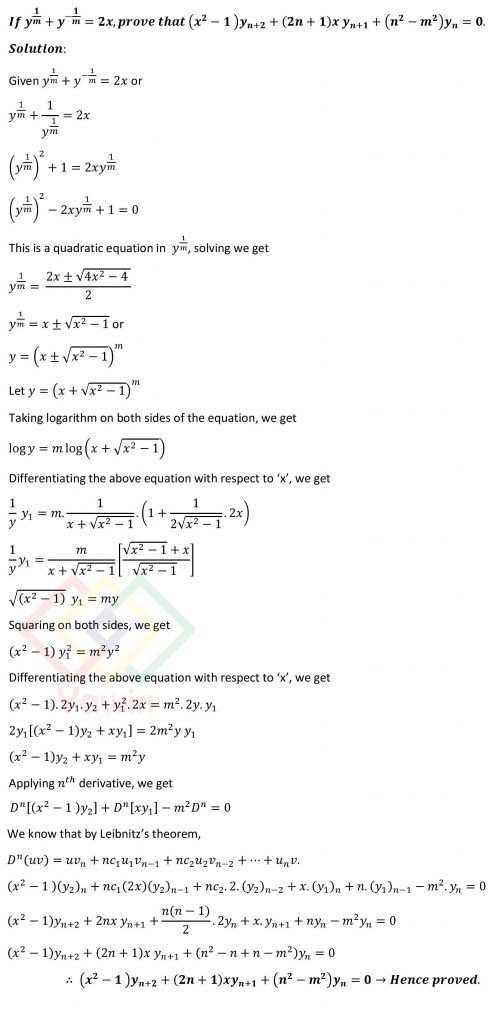If y^(1/m)+y^(-1/m)=2x, prove that (x^2-1 )y_(n+2)+(2n+1)x y_(n+1)+(n^2-m^2 ) y_n=0
Question

Question
If y^(1/m)+y^(-1/m)=2x, prove that (x^2-1 )y_(n+2)+(2n+1)x y_(n+1)+(n^2-m^2 ) y_n=0
Topic
Problems
- Find the n th derivative of x^2 e^x
- Find the n th derivative of x^2 sin^2 x
- Find the n th derivative of x^2 log 4x
- Prove that (1-x^2) y_2 – xy_1 = 2 if y = (sin inverse (x))^2, apply Leibnitz’s theorem to find n^th derivative
- If tan y=x, then prove that (i) (1+x^2) y_2+2xy_1=0 (ii) (1+x^2) y_ (n+2) +2(n+1) xy_ (n+1) +n (n+1) y_n=0
- If x = tan(log y), find the value of (1+x^2) y_ (n+1) + (2nx-1)y_n + n (n-1) y_ (n-1)
- If y=sin(log(x^2+2x+1)), prove that (x+1)^2 y_(n+2)+(2n+1)(x+1) y_(n+1)+(n^2+4 )y_n=0
- If y=(x+sqrt(x^2-1))^m, prove that (x^2-1) y_(n+2)+(2n+1)xy_(n+1)+(n^2-m^2 ) y_n=0
- If sin^(-1)y=2 log(x+1), prove that (x+1)^2 y_(n+2)+(2n+1)(x+1) y_(n+1)+(n^2+4) y_n=0
- If y=cos(mlog x), prove that x^2 y_(n+2)+(2n+1)xy_(n+1)+(m^2+n^2 ) y_n=0
- If x=sint, y=sin(pt), prove that (1-x^2) y_ (n+2)-(2n+1) xy_ (n+1) + (p^2-n^2) y_n=0
- If y^(1/m)+y^(-1/m)=2x, prove that (x^2-1 )y_(n+2)+(2n+1)x y_(n+1)+(n^2-m^2 ) y_n=0
